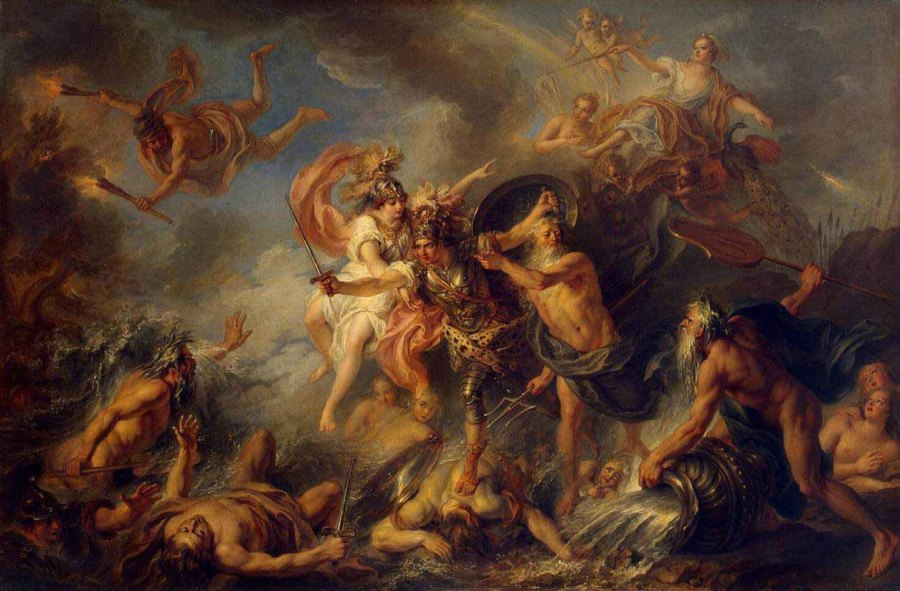The Curse of the House of Atreus: A Tragic Dynasty in Greek Mythology
- Bambino Mariefort

- Sep 25, 2023
- 3 min read

Introduction
Greek mythology is replete with tales of gods, heroes, and tragic destinies. Among the most infamous and tragic stories is that of the House of Atreus. This cursed dynasty, plagued by a relentless cycle of violence and betrayal, serves as a cautionary tale about the consequences of hubris, vengeance, and the inescapable power of fate. In this blog, we will delve into the tragic history of the House of Atreus and the enduring lessons it imparts.
The Origins of the Curse
The curse of the House of Atreus can be traced back to its progenitor, Tantalus. Tantalus, a mortal king, was known for his arrogance and audacity. In an attempt to test the gods' omniscience, he served them his own son, Pelops, during a feast. The gods, repulsed by this act, punished Tantalus by condemning him to eternal torment in the underworld, where he stood in a pool of water that receded when he tried to drink and beneath fruit that moved away when he tried to eat.

The Tragic Tale of Atreus and Thyestes
The curse truly took hold with Atreus and his brother Thyestes. Atreus, vying for power and revenge against his brother, concocted a gruesome plan. He invited Thyestes to a banquet and secretly served him the flesh of Thyestes' own sons. This horrific act initiated a cycle of revenge and bloodshed that would haunt the House of Atreus for generations.

The Agamemnon and Clytemnestra Tragedy
The curse continued with Atreus' sons, Agamemnon and Menelaus. Agamemnon's marriage to Clytemnestra, a union fraught with deception and betrayal, set the stage for another tragic chapter. Agamemnon's sacrifice of his daughter Iphigenia to gain favorable winds for the Trojan War and his eventual return home led to his murder at the hands of Clytemnestra and her lover, Aegisthus.
Orestes and the Pursuit of Vengeance
The most famous episode in the House of Atreus saga involves Orestes, the son of Agamemnon and Clytemnestra. Driven by a thirst for revenge and the urging of the god Apollo, Orestes killed his mother Clytemnestra and her lover Aegisthus to avenge his father's death. However, this act further deepened the curse, as the Furies pursued Orestes for matricide.

Resolution and Divine Intervention
The cycle of revenge and bloodshed finally came to a close with divine intervention. Athena presided over the trial of Orestes and cast the deciding vote in his favor, acquitting him of his crimes. This act of divine justice marked the end of the curse and allowed the House of Atreus to find redemption and closure.
Lessons from the Curse of the House of Atreus
The curse of the House of Atreus serves as a cautionary tale with enduring lessons:
1. Hubris and Excessive Ambition: The curse originated with Tantalus's hubris and Atreus's ambition for power. It warns against the consequences of excessive pride and ambition.
2. The Perpetual Cycle of Revenge: The relentless cycle of vengeance and bloodshed within the house demonstrates the destructive nature of revenge. It highlights the importance of breaking the cycle and seeking reconciliation.
3. Divine Justice: Ultimately, divine intervention brought resolution and justice to the cursed family. It underscores the idea that actions have consequences, and justice may be served in unexpected ways.
4. The Power of Fate: The House of Atreus could not escape the inexorable grip of fate. It reminds us that destiny is a force beyond human control, and some events are destined to unfold.
Conclusion
The tragic saga of the House of Atreus is a powerful and cautionary tale that has captivated audiences for centuries. It reminds us of the consequences of hubris, the destructive nature of revenge, and the enduring power of fate. While the curse of the House of Atreus may be a dark and haunting chapter in Greek mythology, it also serves as a timeless reminder of the complexities of human nature and the moral dilemmas that continue to resonate in our own lives.



Comments